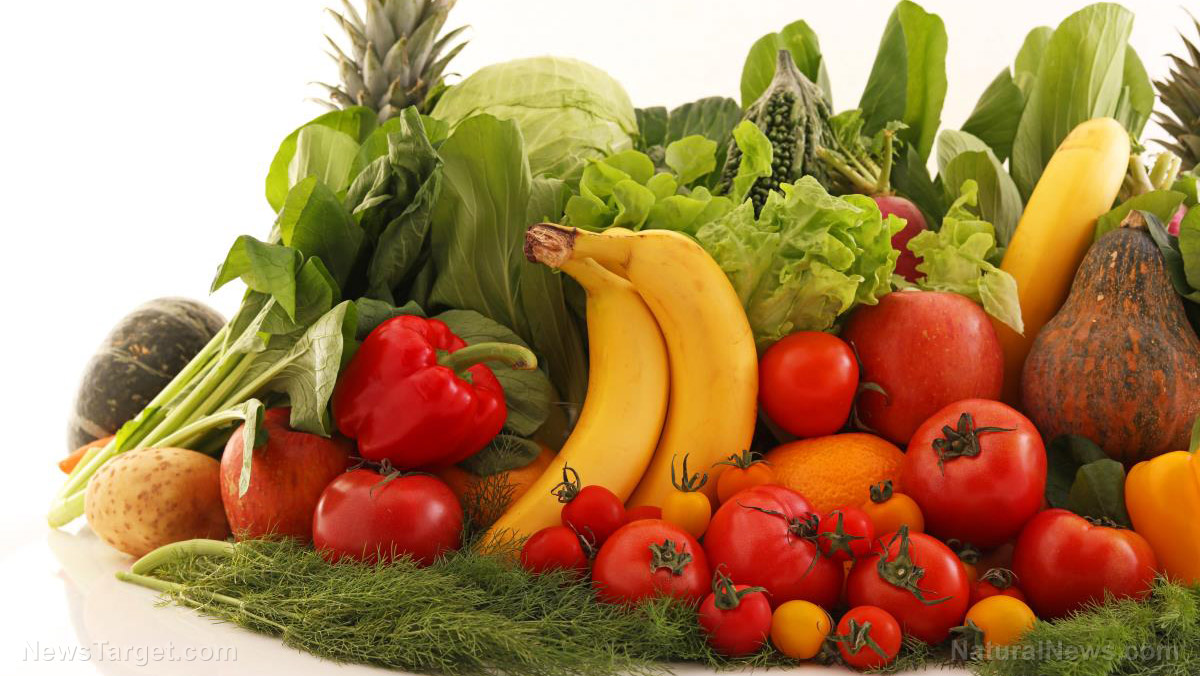Potassium and obesity: Scientists link higher potassium intake to increased weight loss
12/12/2019 / By Michael Alexander

Those looking to get fit and healthy bodies might have to load up on potassium-rich vegetables and fruits, as new research suggests that increased intake of potassium is linked to weight loss.
In a new study published in the journal Nutrients, researchers from Tel Aviv University and Ichilov Hospital in Israel reported that potassium consumption is a previously unrecognized predictor of weight loss. This conclusion was based on their finding which showed that significant reductions in body mass index (BMI) correlates with high potassium intake.
The study involved 68 individuals with an average age of 51, who fulfilled the ATPIII criteria for metabolic syndrome (MS). They participated in a one-year intensive multidisciplinary intervention program which included nutritional recommendations for a low-calorie, high-protein Mediterranean diet.
Pre- and post-intervention asessements showed that participants who increased their potassium intake by 25 percent experienced an above-average decrease in BMI. Meanwhile, participants who increased their potassium intake by only three percent experienced a below-average reduction in their BMI. (Related: Potassium helps prevent strokes, heart attacks, and more)
Dr. Brurya Tal, the study’s lead author, said that while studies on the roles of protein, carbohydrates or fat in weight loss abound, studies exploring the relationship between potassium and weight loss are scarce.
“This is the first study to show a direct connection between potassium consumption and weight loss. The results show that potassium is indeed a key factor in weight loss,” Tal said.

In their report, Tal and colleagues also noted that their findings align with those of previous studies. For instance, they cited three different reports from Korea and Japan which suggested that high potassium intake is linked to a lower prevalence of obesity or MS.
But because the results of their study are novel, the researchers recommended further investigation into the relationship between dietary potassium and weight loss, noting that prospective trials are needed to determine whether or not an increase in dietary potassium intake can improve weight outcomes in people with obesity or the metabolic syndrome.
Potassium: daily requirement and food sources
One of the body’s two main electrolytes alongside sodium, potassium is an essential macromineral that helps in the maintenance of the body’s water and pH balance. Potassium also plays an important role in several key biochemical processes, such as the synthesis of protein and glycogen.
Despite this, however, Americans, on average, only consume around 2,640 milligrams (mg) of potassium daily — far lower than the 3,510 mg recommended by the World Health Organization (WHO) and the 4,700 mg posited by the National Health and Nutrition Examination Survey (NHANES).
According to experts, an easy way to augment potassium levels is to increase the consumption of certain fruits and vegetables, such as bananas, avocados, cucumbers, melons, apricots, grapefruits, pumpkins, peas, dates, prune juice, raisins and leafy greens. These plant-based foods, along with legumes, nuts, mushrooms and whole grains, all contain significant amounts of potassium. Meanwhile, animal-based foods that can also provide potassium include meat, poultry and fish like tuna, salmon, halibut, mackerel and clams.
While potassium can also be obtained by taking supplements, the best way to meet your daily requirement is through your diet. But take care not to exceed the recommended daily intake of this important mineral. Too much potassium in the blood (hyperkalemia) can cause irregular heartbeat, heart attack and even death.
Sources include:
Submit a correction >>
Tagged Under:
alternative medicine, anti-obesity, fightobesity, food cures, food is medicine, functional food, natural cures, natural medicine, nutrients, potassium, prevention, remedies, research, weight loss
This article may contain statements that reflect the opinion of the author





















